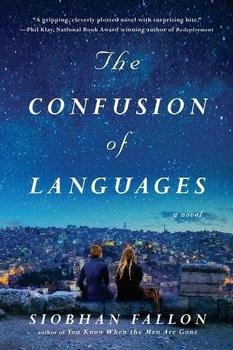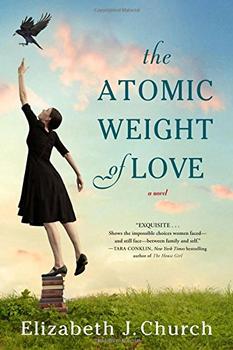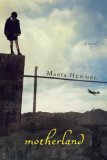Summary | Excerpt | Reading Guide | Reviews | Beyond the book | Read-Alikes | Genres & Themes | Author Bio

The Confusion of Languages is about collision — across boundaries and between cultures for sure, but it also showcases the clashes that can develop between people bound together by marriage, vocation or circumstance.
Margaret Brickshaw, newly arrived in Jordan alongside her military husband, Crick, is Exhibit A for the relentless American style of sunny optimism. Her mentor, fellow American Cassandra Hugo, is convinced that Margaret's brand of cheer, almost bordering on naivete, must be tempered if she is to survive in the shifting sands of the Middle East. "Margaret doesn't recognize that the line between us and them is real," Cass worries, "She's infected with our great American hubris of assuming that deep down every single person wants the same thing: autonomy, freedom, democracy, independence."
Frustrated by infertility and a distant military husband Dan, Cass is desperate for an emotional clutch of some sort. In Margaret she sees the perfect escape. Never mind that this new kid on the block seems to be fertility personified with a needy toddler, Mather, permanently glued to her side. Cass decides that Margaret will be her new best friend, and that it is Cass whom Margaret will turn to every time she needs help. One day, a routine driving accident forces Margaret to visit the local police station and Cass volunteers to watch the baby at the Brickshaws' home. But, to Cass's growing anxiety, Margaret doesn't return. Finally she decides she might be able to find some clues about her disappearance in Cass's diary.
While the novel is set in contemporary times — the 2011 U.S. intervention in Libya occupies some bandwidth — most of the galvanizing action unspools over the period of the few evening hours as Cass becomes increasingly worried about her friend's disappearance. Through the diary, we also travel back in time to learn more about the backstory between Margaret and her enigmatic husband, Crick, and how she perceives her relationship with the somewhat overbearing Cass.
Siobhan Fallon closely follows the advice "write what you know" — a military wife herself who has lived in Jordan, Fallon's assured hand peppers the pages of this suspenseful and tightly paced novel with her personal knowledge of life as part of the Jordanian expat community. "Our status as Americans creates an instantaneous, rarefied friendship," Margaret writes in her diary, "Our history of Super Bowl commercials and expectation of flushable toilet paper seal us together."
While the novel is pegged as a "shattering collision between two women," and it certainly is that, at least one of these protagonists remains frustratingly static for much of the novel. Sunny Margaret initially comes across as a naive blonde who throws almost all caution to the wind. It is only toward the end that she is filled in with more nuance, her role as caregiver to her lupus-suffering mother suffocating her to a point where she seeks release in the arms of the first man who will pay her any attention. Also rather simplistic are the reasons for the marital discord in both the Brickshaw and Hugo families.
These minor shortcomings aren't enough to distract from the gripping plot, which is engaging not just because we have to find out why and how Margaret disappeared, but also just how far Cass will go to retain her suffocating grip over her new friend. Eventually, it is Cass who leaps off the page, her possessiveness and cunning increasingly on alarming display as we careen toward the nail-biting conclusion.
The Confusion of Languages is a sharp and brilliant meditation on the steep costs of coloring outside the lines, especially in an environment where conforming to the norm demands the difficult task of walking a straight and narrow path.
![]() This review was originally published in The BookBrowse Review in August 2017, and has been updated for the
June 2018 edition.
Click here to go to this issue.
This review was originally published in The BookBrowse Review in August 2017, and has been updated for the
June 2018 edition.
Click here to go to this issue.

If you liked The Confusion of Languages, try these:

by Elizabeth Church
Published 2017
In the spirit of The Aviator's Wife and Loving Frank, this resonant debut spans the years from World War II through the Vietnam War to tell the story of a woman whose scientific ambition is caught up in her relationships with two very different men.

by Maria Hummel
Published 2015
The novel bears witness to the shame and courage of Third Reich families during the devastating final days of the war, as each family member's fateful choice lead the reader deeper into questions of complicity and innocence, to the novel's heartbreaking and unforgettable conclusion.
Your guide toexceptional books
BookBrowse seeks out and recommends the best in contemporary fiction and nonfiction—books that not only engage and entertain but also deepen our understanding of ourselves and the world around us.